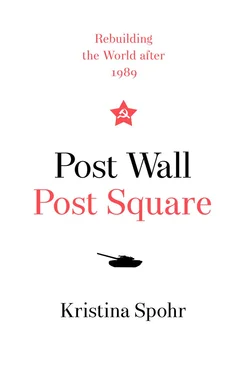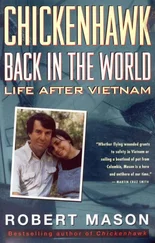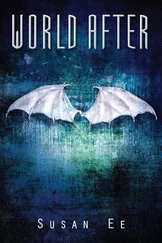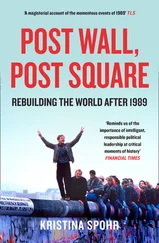As soon as the dinner was over, the Germans held a crisis meeting over coffee. The situation was extremely delicate. The Polish leadership wanted to stop Kohl from going to Berlin, warning that this would be taken as a blatant snub. Horst Teltschik, the chancellor’s top foreign-policy adviser, was also hesitant. ‘Too much has been invested in this trip to Warsaw,’ he warned, ‘too much hangs on it for the future of German–Polish relations.’ Among the events on Kohl’s itinerary were a visit to Auschwitz – as an act of penitence for the Holocaust, preceded only once, by Chancellor Helmut Schmidt (also SPD) in 1977 – and a bilingual Catholic Mass in Lower Silesia shared with Mazowiecki, set up as an act of reconciliation with the Poles. The mass was to be held in a place – the Kreisau estate of Graf von Moltke, one of the July 1944 Christian conservative plotters against Hitler – that symbolised a ‘better Germany in the darkest part of our history’, as the chancellor later put it. Kohl giving the kiss of peace to Mazowiecki linked up with his other iconic act of reconciliation: holding hands with Mitterrand at Verdun in 1984. But this gesture in Silesia was also intended to speak, at home, to the Vertriebene – the ever-prickly members on the right of his own party who had been expelled from the eastern German territories when these were absorbed into the new Poland (and the Soviet Union) after 1945. [3]
Upon leaving the Radziwill Palace, Kohl rushed to the city’s Marriott Hotel, where the West German press corps was staying, to answer their questions. And he remained for several hours because only in a Western hotel was it possible to see the news on German TV and to access a sufficient number of international phone lines. At midnight, when he spoke once more to the Chancellery, staff there confirmed that the crossing points in Berlin were opened. They also conveyed a sense of the massive flows of people and the joyous atmosphere in the once-divided city. Putting down the phone, the chancellor – pumped up with adrenalin – told the journalists that ‘world history is being written … the wheel of history is spinning faster’. [4]
Kohl decided to return to Bonn as soon as diplomatically feasible. ‘We cannot abort the trip,’ he observed, ‘but an interruption is possible.’ Next morning, 10 November, he placated his Polish hosts with a Brandt-style visit to the Warsaw Ghetto and a promise that he would be back within twenty-four hours. By the time he left Poland together with Genscher and a handful of journalists at 2.30 p.m., his destination had changed. While at the Ghetto Memorial, Kohl had received more disturbing news. Walter Momper, the SPD mayor of West Berlin, was organising a major press event, featuring his fellow socialist and former chancellor Willy Brandt, on the steps of the city hall (Schöneberger Rathaus) at 4.30 p.m. that very day. Brandt – the mayor of West Berlin when the Wall went up in August 1961 and then the celebrated chancellor of Ostpolitik – was now going to hog the limelight as the Wall came down. With barely a year to go before the next Federal elections, Kohl could not afford to be upstaged – especially when an earlier CDU chancellor, Konrad Adenauer, had been conspicuously absent from Berlin during those fateful days in 1961 when the eastern half of the city was walled in.
It was all very well to want to go to Berlin. But getting there in November 1989 was no simple business. West German aircraft were not permitted to fly across GDR territory or land in West Berlin because of the Allied four-power rights – another legacy of Hitler’s war. So Kohl and Genscher flew circuitously through Swedish and Danish airspace to Hamburg before boarding a plane specially provided by the US Air Force for the flight to Berlin. Both men used the journey to frantically scribble their speeches. As much as they were partners, they were in the end also political rivals jockeying for position. After this humiliating diversion, they landed at Tempelhof, right in the centre of the city, just as the celebration at the Schöneberger Rathaus was about to begin. Sharing the spotlight with Brandt, they addressed a crowd of 20,000 and world media on the very steps from which, in 1963, President John F. Kennedy had declared ‘ Ich bin ein Berliner .’ [5]
That evening, three key figures of FRG politics each put his own spin on the momentous events of the last twenty-four hours. Brandt, in keeping with his Ostpolitik strategy of ‘small steps’, talked of the ‘moving together of the German states’, emphasising that ‘no one should act as if he knows in which concrete form the people in these two states will find a new relationship’. Genscher opened his address by emotionally recalling his roots in East Germany, from which he fled after the war: ‘My most hearty greetings go to the people of my homeland.’ He was much more emphatic than Brandt about the underlying fact of national unity. ‘What we are witnessing in the streets of Berlin in these hours is that forty years of division have not created two nations out of one. There is no capitalist and there is no socialist Germany, but only one German nation in unity and peace.’ But, as foreign minister, he was anxious to reassure Germany’s neighbours, not least the Poles. ‘No people on this earth, no people in Europe have to fear if the gates are opened now between East and West.’ [6]
Chancellor Kohl spoke last. While the sea of Berlin lefties had cheered Brandt and Genscher, they had no patience with the bulky conservative Catholic politico from the Rhineland. Here party enmity, regional pride and explosive emotions combined; the spectators tried to drown out every word of Kohl’s speech with boos, catcalls and whistling. The chancellor felt his anger rise at the behaviour of what he called contemptuously the ‘leftist plebs’ ( linker Pöbel ). Suppressing his fury, he ploughed on doggedly. Mindful of the upcoming election, Brandt’s iconic place in the history of Deutschlandpolitik and the way that Genscher had grabbed his moment on the balcony in Prague, Kohl ignored the crowd in front of him and spoke to millions of TV viewers, especially in the GDR. He sought to present himself as the man who was really in control, the true leader and statesman. He urged East Germans to stay put and to stay calm. He reassured them: ‘We’re on your side, we are and remain one nation. We belong together.’ And the chancellor made a particular point of thanking ‘our friends’ the Western allies for their enduring support and ended by playing the European card: ‘Long live a free German fatherland! Long live a united Europe!’ [7]
For many – at home and abroad – Kohl’s expression of nationalism went too far. An ominous phone message from Gorbachev was received during the rally. He warned that the Bonn government’s declarations could fan ‘emotions and passions’ and went on to stress the existence of two sovereign German states. Whoever denied these realities had only one aim – that of destabilising the GDR. He had also heard rumours that a furious German mob had plans to storm Soviet military facilities. ‘Is this true?’ he asked. Gorbachev urged Kohl to avoid any measures that ‘could create a chaotic situation with unpredictable consequences’. [8]
Gorbachev’s message summed up the turmoil of the past couple of days, and it also did not appear to bode well for the future. Kohl sent a reply assuring the Soviet leader that he need not worry: the atmosphere in Berlin was like a family feast and nobody was about to start a revolt against the USSR. [9]But, with a profound sense of risk in the air, these were fraught and uncertain times for the chancellor. Would his three Western allies react as negatively as Gorbachev? As soon as he got back to his Bonn office later that evening, despite his exhaustion, he tried to arrange phone calls with Thatcher, Bush and Mitterrand.
Читать дальше












